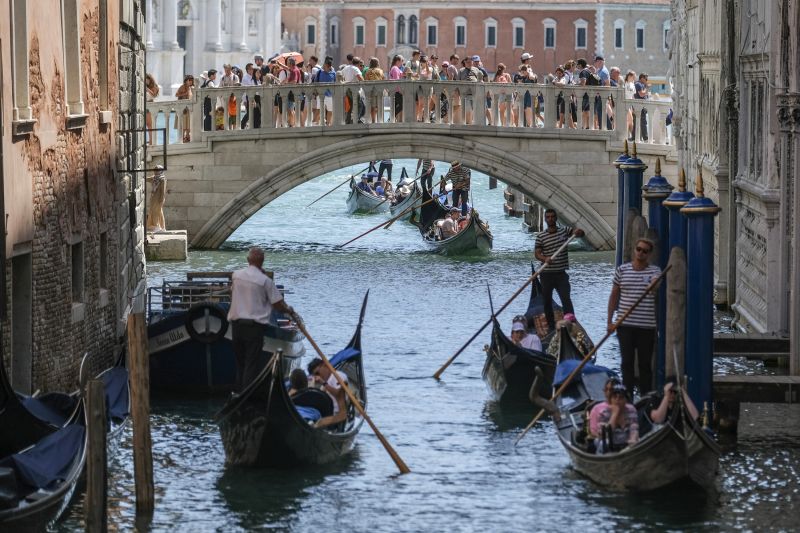
Venice Implements Measures to Control Tourist Groups and Restrict the Use of Loudspeakers

Venice takes steps to tackle mass tourism by imposing restrictions on tourist groups, capping them at 25 individuals, and implementing a ban on loudspeakers These measures aim to preserve the city's tranquility and enhance the visitor experience
Venice will now enforce a limit of 25 people for tourist walking groups and will prohibit the use of loudspeakers in an attempt to address the issue of mass tourism. Additionally, groups will no longer be allowed to stop in narrow streets, on bridges, or in passageways.
New rules will limit tourist activities in the bustling city of Venice, with the historic center and islands of Murano, Burano, and Torcello affected. Effective June 2024, the regulations state that groups cannot exceed 25 people, or half the capacity of a tourist coach. Additionally, the use of disruptive loudspeakers will be banned. This information was announced on the official website of Venice.
The resolution will have to go before the City Council before being implemented.
Gondoliers ride slowly near St. Mark's Square due to too much traffic.
Stefano Mazzola/Getty Images
Security councilor Elisabetta Pesce praised the development as a "crucial step in enhancing the management of groups" and "fostering sustainable tourism while ensuring the protection and safety of the city."
Currently, Venice museums restrict group sizes to 25 people.
Simone Venturini, the tourism councilor for the city, expressed that this decision is just one part of a larger effort to improve tourism management in Venice and ensure a more harmonious relationship between the residents and tourists.
These new regulations will be implemented two months after a trial period for a visitor fee of â¬5 ($5.40) for day trippers to the city.
Venice was recommended to be added to the heritage danger list by the United Nations Educational, Scientific and Cultural Organization (UNESCO) in July. The Italian government was urged to address the city's "long-standing problems" with "utmost dedication."
The popular tourist destination has been grappling for years with too many visitors and the effects of climate change.














